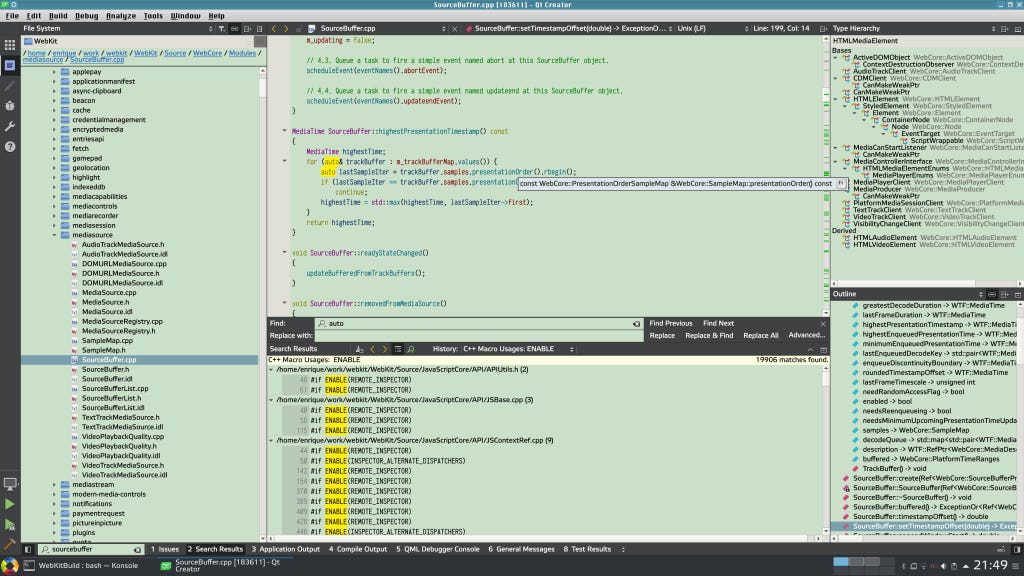WebKitGTK, Epiphany, and the Open Web Ecosystem: An Alternative to Chromium Monopoly
Introduction to WebKitGTK
WebKitGTK is a GTK port of the WebKit rendering engine, designed to provide an efficient, standards-compliant, and open-source foundation for web browsing and web-based applications. Initially derived from KHTML and KJS used in the KDE project, WebKit emerged as a versatile rendering engine under Apple’s stewardship. WebKitGTK evolved as its GNOME-centric adaptation, offering integration with the GTK toolkit commonly used in Linux environments. It is a preferred engine for lightweight and privacy-focused browsing experiences in the GNOME ecosystem.
Epiphany: GNOME’s Web Browser
Epiphany, also branded as GNOME Web, is the flagship browser leveraging WebKitGTK. Born in the early 2000s as part of GNOME's initiative to create a suite of applications adhering to its design philosophy, Epiphany was built to offer a clean, minimalist browsing experience. It emphasizes ease of use, security, and seamless integration with GNOME desktop environments. Over the years, Epiphany has gained features such as intelligent tracking prevention, ad blocking, and integration with GNOME Online Accounts, making it a robust yet lightweight alternative to mainstream browsers.
The Chromium Monopoly
The browser market is heavily dominated by Chromium, the open-source project underpinning browsers like Google Chrome, Microsoft Edge, and Brave. Chromium’s ubiquity has led to concerns about reduced diversity in browser engines, which risks homogenizing the web's future under Google's influence. Web developers increasingly optimize for Chromium, potentially sidelining alternative rendering engines and browsers.
This dominance poses challenges to web standards, user privacy, and innovation. When a single engine dictates web compatibility, smaller players like Firefox’s Gecko and WebKit-based browsers struggle to maintain equal footing. This concentration also risks privacy erosion, as many Chromium-based browsers inherently integrate features that feed into the Google ecosystem.
WebKitGTK and Epiphany as Alternatives
WebKitGTK and Epiphany represent a meaningful divergence from the Chromium monopoly. They provide a fully open-source and community-driven alternative, prioritizing privacy, resource efficiency, and adherence to open web standards. By supporting projects like Epiphany, users contribute to a diverse web ecosystem, ensuring the web remains open and competitive.
WebKitGTK also serves as a foundation for other applications, from lightweight browsers to web-based embedded systems. It is particularly significant for Linux distributions that align with free software principles, as it provides a viable alternative to the proprietary elements often embedded in Chromium-based projects.
Challenges and Future Prospects
Despite their merits, WebKitGTK and Epiphany face challenges, including limited market share, compatibility issues with some web applications, and slower development cycles compared to Chromium. However, they continue to be actively maintained and improved, supported by contributors who prioritize web diversity and privacy.
Going forward, fostering awareness about these alternatives and encouraging web developers to adhere to open standards are crucial steps to counteract the Chromium monopoly. Supporting organizations like the GNOME Foundation and initiatives like WebKitGTK ensures a healthier web ecosystem for all users.


